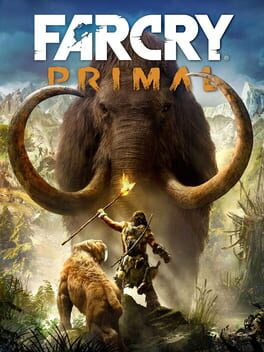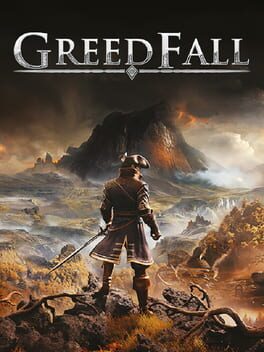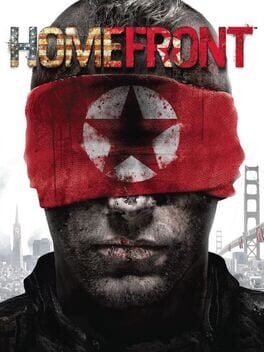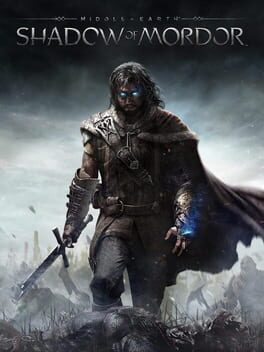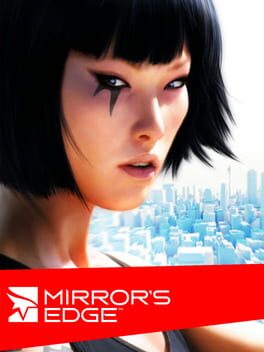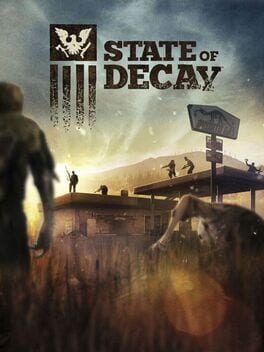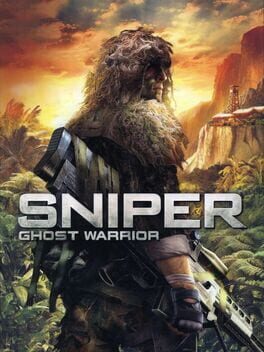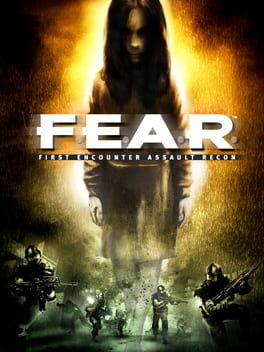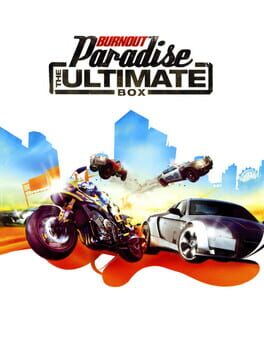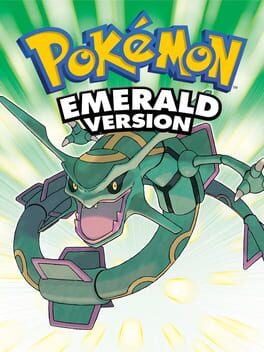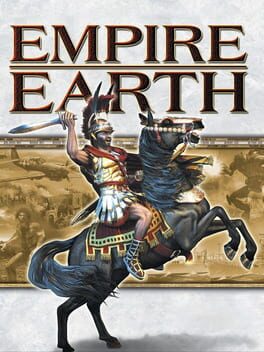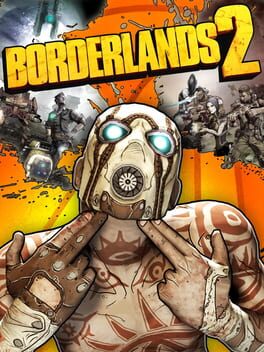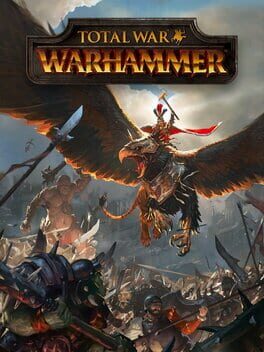Jodeci
2016
- Flying goats.
- Buggy pets running around and through outpost to get to me while I'm trying to sneak.
- Low res map and icons.
- Animal density is WAY too much. Especially at night.
- Extremely annoying boss fights with no mechanics, just a bunch of adds dump which you have to kill.
- Lack of any baby animals for so many animals.
- Resource gathering overemphasis, although it fits in the social context and physical setting, gameplay wise its annoying.
- Only two boss fights with no mechanics involved. Only the icicle thing when fighting Ull, which is childsplay. It's just a bunch of adds you need to kill to survive. Annoying.
- Limited enemy variety.
- Feels too much like previous far cry games. Which could be positive and negative, in my case it was negative since it felt repetitive.
- Sometimes the enemies saw me through walls.
+ Cool and diverse pet system.
+ Love the owl pet system.
+ Love the fast travel system.
+ Physical setting is good.
+ Social context is fine.
+ Able to pet your pet.
+ Animal models, especially the pets when you pet them, look fabulous.
- Buggy pets running around and through outpost to get to me while I'm trying to sneak.
- Low res map and icons.
- Animal density is WAY too much. Especially at night.
- Extremely annoying boss fights with no mechanics, just a bunch of adds dump which you have to kill.
- Lack of any baby animals for so many animals.
- Resource gathering overemphasis, although it fits in the social context and physical setting, gameplay wise its annoying.
- Only two boss fights with no mechanics involved. Only the icicle thing when fighting Ull, which is childsplay. It's just a bunch of adds you need to kill to survive. Annoying.
- Limited enemy variety.
- Feels too much like previous far cry games. Which could be positive and negative, in my case it was negative since it felt repetitive.
- Sometimes the enemies saw me through walls.
+ Cool and diverse pet system.
+ Love the owl pet system.
+ Love the fast travel system.
+ Physical setting is good.
+ Social context is fine.
+ Able to pet your pet.
+ Animal models, especially the pets when you pet them, look fabulous.
2019
- Errand boy simulator.
- Cringeworthy Oai and moai voice acting.
- Lifeless NPCs stuck in monotonous walking loops.
- Expected chest locations on maps turned out to be empty, serving as mere time-wasters.
- Stealth elements like sneaking were rarely necessary.
- Keys for chests and doors were practically useless, as picking locks with "E" was more convenient than using keys with "Q," resulting in accumulating unused items in the inventory.
- Several visual glitches.
- Inability to jump.
- Overly extended and dragging storyline (I did all the side quests too).
- Lack of action, lots of running around.
- Underwhelming and excessively easy boss fights with repetitive mechanics and excessive HP.
- Limited enemy and boss diversity.
- Waiting for hours or minutes to progress in some storylines felt like a waste of time.
- The "max weight" aspect seemed irrelevant, as it never played a significant role. I did always sell my junk armor etc., and it's probably good that it never did, but why have it in your game anyway?
- Queen's farewell quest for companion Siora was frustrating due to the need to craft potions, requiring time-consuming back-and-forth trips.
- A minimap would've been highly appreciated.
- No armor piece comparison when purchasing new equipment.
- Mediocre soundtracks, no memorable ones.
- No mounts. Not only that but not a single horse has been seen throughout the entire game.
- Same repetitive layouts for taverns, rooms etc. In every city.
+ Physical setting is fine.
+ Social context is fine.
+ Story was engaging at times.
+ Looting system felt rewarding.
+ I liked the reputation system.
+ Minor details, like when you push against your companions that they back up and move out of your way, are appreciated.
+ The resting place every time you fast travel was a good idea, especially adding the vendor in there.
+ "I am De Sardet, legate of the merchant congregation."
+ Attributes system was cool where you needed vigor lvls to jump certain places for example. Reminded me of RuneScape where you needed to be a certain level in something to be allowed entry. Gives a VIP feeling. Feels rewarding.
+ Likable companions.
+ Option to include companions in some dialogues.
+ Companions actively giving input.
+ Actually made use of the shopkeeper and bought items such as armor and weapons, unlike other games where you use them just to sell stuff.
+ Armor details look good.
- Cringeworthy Oai and moai voice acting.
- Lifeless NPCs stuck in monotonous walking loops.
- Expected chest locations on maps turned out to be empty, serving as mere time-wasters.
- Stealth elements like sneaking were rarely necessary.
- Keys for chests and doors were practically useless, as picking locks with "E" was more convenient than using keys with "Q," resulting in accumulating unused items in the inventory.
- Several visual glitches.
- Inability to jump.
- Overly extended and dragging storyline (I did all the side quests too).
- Lack of action, lots of running around.
- Underwhelming and excessively easy boss fights with repetitive mechanics and excessive HP.
- Limited enemy and boss diversity.
- Waiting for hours or minutes to progress in some storylines felt like a waste of time.
- The "max weight" aspect seemed irrelevant, as it never played a significant role. I did always sell my junk armor etc., and it's probably good that it never did, but why have it in your game anyway?
- Queen's farewell quest for companion Siora was frustrating due to the need to craft potions, requiring time-consuming back-and-forth trips.
- A minimap would've been highly appreciated.
- No armor piece comparison when purchasing new equipment.
- Mediocre soundtracks, no memorable ones.
- No mounts. Not only that but not a single horse has been seen throughout the entire game.
- Same repetitive layouts for taverns, rooms etc. In every city.
+ Physical setting is fine.
+ Social context is fine.
+ Story was engaging at times.
+ Looting system felt rewarding.
+ I liked the reputation system.
+ Minor details, like when you push against your companions that they back up and move out of your way, are appreciated.
+ The resting place every time you fast travel was a good idea, especially adding the vendor in there.
+ "I am De Sardet, legate of the merchant congregation."
+ Attributes system was cool where you needed vigor lvls to jump certain places for example. Reminded me of RuneScape where you needed to be a certain level in something to be allowed entry. Gives a VIP feeling. Feels rewarding.
+ Likable companions.
+ Option to include companions in some dialogues.
+ Companions actively giving input.
+ Actually made use of the shopkeeper and bought items such as armor and weapons, unlike other games where you use them just to sell stuff.
+ Armor details look good.
2011
I recently played Homefront, a first-person shooter game, and while it had some positives, I have to admit that it left me feeling underwhelmed.
One of the biggest drawbacks of the game is that I was forced to walk a lot, which became frustrating and time-consuming. The dialogue also felt overly long and dull, making it challenging to stay engaged with the story. Speaking of the story, it was pretty average and fell into the "murica!" game trope that we've seen countless times before.
Another negative of the game was the complete lack of directional help. I often found myself lost and left to figure out where to go on my own, which was annoying. The checkpoints in the game were also terrible, setting me back too far and making the game feel longer than it needed to be. The gameplay itself felt clunky, and the gun sounds were repetitive and unimpressive.
On the positive side, the physical setting of the game was decent. I also appreciated that the game chose North Korea as the enemy, as it was a refreshing change from the typical enemies seen in other games. The people hung on towers and buildings throughout the game really helped set the mood, and I particularly enjoyed the helicopter gameplay, even though it was unrealistic and strange.
Overall, while Homefront had some positive elements, the negatives outweighed them, leaving me feeling disappointed in the end.
One of the biggest drawbacks of the game is that I was forced to walk a lot, which became frustrating and time-consuming. The dialogue also felt overly long and dull, making it challenging to stay engaged with the story. Speaking of the story, it was pretty average and fell into the "murica!" game trope that we've seen countless times before.
Another negative of the game was the complete lack of directional help. I often found myself lost and left to figure out where to go on my own, which was annoying. The checkpoints in the game were also terrible, setting me back too far and making the game feel longer than it needed to be. The gameplay itself felt clunky, and the gun sounds were repetitive and unimpressive.
On the positive side, the physical setting of the game was decent. I also appreciated that the game chose North Korea as the enemy, as it was a refreshing change from the typical enemies seen in other games. The people hung on towers and buildings throughout the game really helped set the mood, and I particularly enjoyed the helicopter gameplay, even though it was unrealistic and strange.
Overall, while Homefront had some positive elements, the negatives outweighed them, leaving me feeling disappointed in the end.
I recently played Shadow of Mordor, and I have to say that my experience was a bit of a mixed bag. On the positive side, I thought the combat system was quite good. It was smooth and responsive, and it allowed for a lot of different moves and tactics. There were some really satisfying moments when I took down a group of Uruks in a creative way.
However, I have to say that I found the world to be rather disappointing. It was chaotic, ugly, and just generally bland. I understand that the game was going for a crowded, Uruk-infested environment, but it just felt annoying and frustrating to navigate. The lack of variety and creativity in the environment made the game feel repetitive and monotonous.
One of the things I did enjoy about the game was the character of Ratbag. He was a unique and interesting character, and I was disappointed when they killed him off so quickly. It felt like they could have done a lot more with him, and I would have liked to see more of his story.
One of the things that really bothered me about the game was the fact that you couldn't click "retry" on objectives. Instead, you had to click "abandon" and then travel all the way back to the starting point to activate it again. This felt like an unnecessary annoyance that was put in just to frustrate players.
In terms of the story, I have to say that it was rather meh. It didn't really capture my interest or make me care about the characters or the world.
While it had some positives, the negatives outweighed them for me. Ultimately, it will come down to personal preference, but for me, the game didn't quite hit the mark.
However, I have to say that I found the world to be rather disappointing. It was chaotic, ugly, and just generally bland. I understand that the game was going for a crowded, Uruk-infested environment, but it just felt annoying and frustrating to navigate. The lack of variety and creativity in the environment made the game feel repetitive and monotonous.
One of the things I did enjoy about the game was the character of Ratbag. He was a unique and interesting character, and I was disappointed when they killed him off so quickly. It felt like they could have done a lot more with him, and I would have liked to see more of his story.
One of the things that really bothered me about the game was the fact that you couldn't click "retry" on objectives. Instead, you had to click "abandon" and then travel all the way back to the starting point to activate it again. This felt like an unnecessary annoyance that was put in just to frustrate players.
In terms of the story, I have to say that it was rather meh. It didn't really capture my interest or make me care about the characters or the world.
While it had some positives, the negatives outweighed them for me. Ultimately, it will come down to personal preference, but for me, the game didn't quite hit the mark.
2008
After spending some time with Mirror's Edge, I have to say that the game didn't live up to my expectations. While the game's visual style is undoubtedly appealing, with its minimalistic and simple design, it doesn't make up for the game's many shortcomings.
The gameplay feels clunky and janky, which makes executing certain moves difficult, leading to frustrating gameplay experiences. As a parkour game, you'd expect to fall a lot, but the checkpoint system is excruciatingly terrible, often requiring you to replay long stretches of levels due to a single mistake. This quickly becomes tiresome, especially given the levels themselves are so repetitive and bland.
The game tries to introduce puzzle elements, but they feel more like chores than anything engaging or fun. They add little to the overall experience, which is a shame as the game could have used something to break up the monotony.
All in all, while Mirror's Edge has some strengths, including a unique visual style, it falls short in so many other areas. The gameplay is frustrating and the levels repetitive, making it difficult to stay engaged. The game's lack of variety and engaging content means I had to drop it.
The gameplay feels clunky and janky, which makes executing certain moves difficult, leading to frustrating gameplay experiences. As a parkour game, you'd expect to fall a lot, but the checkpoint system is excruciatingly terrible, often requiring you to replay long stretches of levels due to a single mistake. This quickly becomes tiresome, especially given the levels themselves are so repetitive and bland.
The game tries to introduce puzzle elements, but they feel more like chores than anything engaging or fun. They add little to the overall experience, which is a shame as the game could have used something to break up the monotony.
All in all, while Mirror's Edge has some strengths, including a unique visual style, it falls short in so many other areas. The gameplay is frustrating and the levels repetitive, making it difficult to stay engaged. The game's lack of variety and engaging content means I had to drop it.
2013
I recently played State of Decay, a survival game set in a post-apocalyptic world overrun by zombies. While I enjoyed many aspects of the game, there were also several issues that prevented it from being a truly great experience.
On the positive side, the open-world design of the game allowed me to explore a vast and immersive environment filled with danger and opportunity. I enjoyed managing my resources and building up my community, and the randomized events kept the gameplay feeling fresh and unpredictable. I also appreciated the permadeath mechanic, which added a sense of tension and consequence to my decisions.
However, the game also suffered from several technical issues, including frequent bugs and glitches that detracted from the overall experience. The AI was also often simplistic and unresponsive, which made the gameplay feel repetitive and predictable at times. While the game had an interesting premise, the lack of a compelling story and character development left me feeling somewhat detached from the world and its inhabitants. Finally, while the crafting and scavenging mechanics were enjoyable, the limited player choice and inconsequential decision-making made it feel more like a simulation than a true survival experience.
Overall, while the game has its strengths, including its replayability and unique permadeath mechanic, it also has several weaknesses that prevent it from being a truly great game. Fans of survival games may still find plenty to enjoy here, but others may want to look elsewhere for a more polished and immersive experience.
On the positive side, the open-world design of the game allowed me to explore a vast and immersive environment filled with danger and opportunity. I enjoyed managing my resources and building up my community, and the randomized events kept the gameplay feeling fresh and unpredictable. I also appreciated the permadeath mechanic, which added a sense of tension and consequence to my decisions.
However, the game also suffered from several technical issues, including frequent bugs and glitches that detracted from the overall experience. The AI was also often simplistic and unresponsive, which made the gameplay feel repetitive and predictable at times. While the game had an interesting premise, the lack of a compelling story and character development left me feeling somewhat detached from the world and its inhabitants. Finally, while the crafting and scavenging mechanics were enjoyable, the limited player choice and inconsequential decision-making made it feel more like a simulation than a true survival experience.
Overall, while the game has its strengths, including its replayability and unique permadeath mechanic, it also has several weaknesses that prevent it from being a truly great game. Fans of survival games may still find plenty to enjoy here, but others may want to look elsewhere for a more polished and immersive experience.
I was excited to play Sniper: Ghost Warrior, hoping for a realistic and engaging sniper experience. However, the game ultimately fell short in many areas.
While the bullet physics system is impressive, and the stealth gameplay has potential, the game is let down by repetitive and underdeveloped mechanics. The sniping is the main focus of the game, but it lacks variety and doesn't do enough to keep the gameplay engaging.
The storyline initially shows promise, but it quickly loses steam and fails to deliver a satisfying conclusion. The diverse environments are a highlight, but the game's technical issues and occasional glitches detract from the experience.
The AI is simplistic and predictable, making the stealth gameplay feel shallow and underdeveloped. While the sniper rifles are well-designed and customizable, the lack of innovation and fresh mechanics make the experience feel stale. The skill tree system is a welcome addition, but it doesn't add enough depth to the gameplay to make up for the game's other shortcomings.
Finally, while the multiplayer mode is a standout feature, it's not enough to save the game from its overall lack of polish and underdeveloped mechanics. In conclusion, while Sniper: Ghost Warrior has some good ideas, it fails to deliver a satisfying gaming experience.
While the bullet physics system is impressive, and the stealth gameplay has potential, the game is let down by repetitive and underdeveloped mechanics. The sniping is the main focus of the game, but it lacks variety and doesn't do enough to keep the gameplay engaging.
The storyline initially shows promise, but it quickly loses steam and fails to deliver a satisfying conclusion. The diverse environments are a highlight, but the game's technical issues and occasional glitches detract from the experience.
The AI is simplistic and predictable, making the stealth gameplay feel shallow and underdeveloped. While the sniper rifles are well-designed and customizable, the lack of innovation and fresh mechanics make the experience feel stale. The skill tree system is a welcome addition, but it doesn't add enough depth to the gameplay to make up for the game's other shortcomings.
Finally, while the multiplayer mode is a standout feature, it's not enough to save the game from its overall lack of polish and underdeveloped mechanics. In conclusion, while Sniper: Ghost Warrior has some good ideas, it fails to deliver a satisfying gaming experience.
2005
As a fan of horror and first-person shooter games, I was excited to try out F.E.A.R. The game's engaging story and solid combat mechanics did not disappoint. The slow-motion and bullet time mechanics added a level of strategy and intensity to combat that made taking down enemies feel incredibly satisfying.
However, the game did have its drawbacks. The linear level design and repetitive gameplay became predictable and less engaging over time. Additionally, the lack of variety in weapons and enemies made the combat feel stale at times. Despite these flaws, the game's impressive graphics and intense atmosphere kept me hooked.
One of the game's standout features was its horror elements. The game's use of sound effects and jump scares added to the overall sense of unease and terror. The game's villain, Alma, was a memorable and iconic character in the horror genre, with her appearance and behavior adding to the game's horror elements and making her a truly terrifying antagonist. The Alma vision mechanic was a unique feature that added to the game's intrigue and mystery.
Overall, F.E.A.R. is a solid horror-themed shooter game that is worth playing for fans of the genre. While the game has its flaws, the engaging story, solid combat mechanics, and horror elements make for an enjoyable experience.
However, the game did have its drawbacks. The linear level design and repetitive gameplay became predictable and less engaging over time. Additionally, the lack of variety in weapons and enemies made the combat feel stale at times. Despite these flaws, the game's impressive graphics and intense atmosphere kept me hooked.
One of the game's standout features was its horror elements. The game's use of sound effects and jump scares added to the overall sense of unease and terror. The game's villain, Alma, was a memorable and iconic character in the horror genre, with her appearance and behavior adding to the game's horror elements and making her a truly terrifying antagonist. The Alma vision mechanic was a unique feature that added to the game's intrigue and mystery.
Overall, F.E.A.R. is a solid horror-themed shooter game that is worth playing for fans of the genre. While the game has its flaws, the engaging story, solid combat mechanics, and horror elements make for an enjoyable experience.
2018
House Flipper is a unique game that offers players the chance to experience the satisfaction of renovating and decorating houses without the hassle of doing it in real life. I found the concept of the game to be quite interesting and engaging, and the ability to design and decorate different properties was a lot of fun. However, I did find the gameplay to become somewhat repetitive over time. The tasks of cleaning, painting, and furnishing houses can feel like a chore after a while, and the lack of challenge in the game can make it feel a bit too easy.
That being said, the game does offer some great features. The realistic tools and mechanics for home improvement add a level of authenticity to the game and make it feel like a true home renovation simulator. I appreciated the attention to detail in the game's mechanics, such as the ability to mix and match paint colors and the option to use different types of screws and nails.
Another positive aspect of the game is the creative freedom it offers. Despite the limited customization options, I still found it satisfying to experiment with different furniture and decor styles to create unique and personalized spaces. I also enjoyed the business management aspect of the game, as it adds a level of strategy and planning to the gameplay.
Overall, I found House Flipper to be a relaxing and enjoyable game, but it does have its flaws. The lack of challenge and repetitive gameplay can make it feel a bit too easy, and the glitches and bugs can be frustrating at times. However, the unique concept, realistic mechanics, and creative freedom make it a worthwhile experience. If you're looking for a fun and stress-free game to unwind with, House Flipper is definitely worth checking out.
That being said, the game does offer some great features. The realistic tools and mechanics for home improvement add a level of authenticity to the game and make it feel like a true home renovation simulator. I appreciated the attention to detail in the game's mechanics, such as the ability to mix and match paint colors and the option to use different types of screws and nails.
Another positive aspect of the game is the creative freedom it offers. Despite the limited customization options, I still found it satisfying to experiment with different furniture and decor styles to create unique and personalized spaces. I also enjoyed the business management aspect of the game, as it adds a level of strategy and planning to the gameplay.
Overall, I found House Flipper to be a relaxing and enjoyable game, but it does have its flaws. The lack of challenge and repetitive gameplay can make it feel a bit too easy, and the glitches and bugs can be frustrating at times. However, the unique concept, realistic mechanics, and creative freedom make it a worthwhile experience. If you're looking for a fun and stress-free game to unwind with, House Flipper is definitely worth checking out.
When I first started playing Burnout Paradise: The Ultimate Box back in the day, I was blown away by the stunning graphics and the impressive open world design. The city is filled with so much detail and variety, and the cars are beautifully rendered with realistic physics and damage modeling. The game's soundtrack is also a highlight, with a great mix of rock, pop, and electronic music that enhances the fast-paced and adrenaline-fueled gameplay.
While I did miss the structured racing events of previous Burnout games, the open-world design of Burnout Paradise: The Ultimate Box offers a lot of player freedom. I loved being able to freely explore the city and participate in various events without any set order or structure. The boost system is also a great addition, allowing me to increase my speed and perform special maneuvers by filling up my boost meter. And the crash mode is highly addictive and entertaining, allowing me to cause as much destruction as possible in a designated area.
However, there are a few criticisms I have of the game. I found the AI to be frustratingly difficult at times, particularly in races where opponents seemed to have an unfair advantage. And while the game offers a variety of different events and challenges, the limited variety of cars can make the gameplay feel repetitive over time. Additionally, the lack of customization options for cars was disappointing, as I would have liked to be able to modify the performance or handling of my vehicles.
Overall, I highly recommend Burnout Paradise: The Ultimate Box. The fun and engaging gameplay, stunning graphics, and great soundtrack make it a highly enjoyable experience. The open-world design offers a lot of player freedom, and the crash mode is a highly addictive feature. While there are a few criticisms of the game, they are relatively minor and do not detract from the overall enjoyment of the game.
While I did miss the structured racing events of previous Burnout games, the open-world design of Burnout Paradise: The Ultimate Box offers a lot of player freedom. I loved being able to freely explore the city and participate in various events without any set order or structure. The boost system is also a great addition, allowing me to increase my speed and perform special maneuvers by filling up my boost meter. And the crash mode is highly addictive and entertaining, allowing me to cause as much destruction as possible in a designated area.
However, there are a few criticisms I have of the game. I found the AI to be frustratingly difficult at times, particularly in races where opponents seemed to have an unfair advantage. And while the game offers a variety of different events and challenges, the limited variety of cars can make the gameplay feel repetitive over time. Additionally, the lack of customization options for cars was disappointing, as I would have liked to be able to modify the performance or handling of my vehicles.
Overall, I highly recommend Burnout Paradise: The Ultimate Box. The fun and engaging gameplay, stunning graphics, and great soundtrack make it a highly enjoyable experience. The open-world design offers a lot of player freedom, and the crash mode is a highly addictive feature. While there are a few criticisms of the game, they are relatively minor and do not detract from the overall enjoyment of the game.
I remember playing Pokémon Emerald back in the day and being impressed by the enhancements and new features that the game brought to the series. One of the standout features for me was the Battle Frontier, which added a lot of replayability to the game. The facility featured a variety of different battles with different rules and objectives, which kept the gameplay feeling fresh and exciting.
However, while the Battle Frontier was a major improvement over previous games, I did find some aspects of the game to be repetitive, particularly the traveling and battling. It felt like there were a lot of random battles that didn't add much to the game, which could make the game feel like a slog at times.
One thing that I did appreciate about Pokémon Emerald was the expanded storyline, which included more characters, events, and plot twists. This made the game feel more engaging and immersive, and kept me invested in the story throughout. Additionally, the increased number of Pokémon to catch added more variety to the gameplay, making it feel like there was always something new to discover.
The graphics and sound in Pokémon Emerald were also a major improvement over its predecessors, with more detailed sprites, backgrounds, and music. The game's presentation felt like a significant step up from Pokémon Ruby and Sapphire, and added to the overall immersion and enjoyment of the game.
Overall, while Pokémon Emerald wasn't perfect, it was a solid entry in the Pokémon franchise that brought a lot of new features and improvements to the series. The game's expanded storyline, improved graphics and sound, and increased replayability made it a must-play for any Pokémon fan, despite its flaws.
However, while the Battle Frontier was a major improvement over previous games, I did find some aspects of the game to be repetitive, particularly the traveling and battling. It felt like there were a lot of random battles that didn't add much to the game, which could make the game feel like a slog at times.
One thing that I did appreciate about Pokémon Emerald was the expanded storyline, which included more characters, events, and plot twists. This made the game feel more engaging and immersive, and kept me invested in the story throughout. Additionally, the increased number of Pokémon to catch added more variety to the gameplay, making it feel like there was always something new to discover.
The graphics and sound in Pokémon Emerald were also a major improvement over its predecessors, with more detailed sprites, backgrounds, and music. The game's presentation felt like a significant step up from Pokémon Ruby and Sapphire, and added to the overall immersion and enjoyment of the game.
Overall, while Pokémon Emerald wasn't perfect, it was a solid entry in the Pokémon franchise that brought a lot of new features and improvements to the series. The game's expanded storyline, improved graphics and sound, and increased replayability made it a must-play for any Pokémon fan, despite its flaws.
2001
As someone who played Black & White when I was around 10 years old, I can say that I absolutely loved the game. The unique blend of real-time strategy, god games, and simulation games created a gameplay experience that was unlike anything I had played before. I particularly enjoyed the ability to customize my creature and teach it different abilities and behaviors, which added a level of personalization and investment to the game.
Despite some criticisms about the game's controls and pacing, I found the world of Black & White to be highly immersive. The game's detailed graphics and sound helped to bring the world to life, and the dynamic weather system and day-night cycle added to the sense of immersion. The varied paths and endings of the game also added to its replayability. I loved the ability to choose whether to be a benevolent or malevolent god, and the way that my actions and decisions would affect the game's outcome.
One of the most innovative aspects of Black & White was its use of moral choices. I found the game's implementation of this mechanic to be highly engaging. My decisions and actions would affect the way that my creature behaved and the way that villagers viewed me. This added a level of depth and complexity to the game that kept me engaged for hours on end.
In conclusion, Black & White was a truly unique and innovative game that I would highly recommend to anyone who enjoys real-time strategy, god games, or simulation games. While there were some criticisms about the game's controls and pacing, the game's immersive world, creature customization, varied paths and endings, and innovative use of moral choices more than made up for any shortcomings. Black & White was a game that I enjoyed every second of, and I'm sure that many other players will too.
Despite some criticisms about the game's controls and pacing, I found the world of Black & White to be highly immersive. The game's detailed graphics and sound helped to bring the world to life, and the dynamic weather system and day-night cycle added to the sense of immersion. The varied paths and endings of the game also added to its replayability. I loved the ability to choose whether to be a benevolent or malevolent god, and the way that my actions and decisions would affect the game's outcome.
One of the most innovative aspects of Black & White was its use of moral choices. I found the game's implementation of this mechanic to be highly engaging. My decisions and actions would affect the way that my creature behaved and the way that villagers viewed me. This added a level of depth and complexity to the game that kept me engaged for hours on end.
In conclusion, Black & White was a truly unique and innovative game that I would highly recommend to anyone who enjoys real-time strategy, god games, or simulation games. While there were some criticisms about the game's controls and pacing, the game's immersive world, creature customization, varied paths and endings, and innovative use of moral choices more than made up for any shortcomings. Black & White was a game that I enjoyed every second of, and I'm sure that many other players will too.
2001
As a gamer who played Empire Earth when I was around 10 years old, I have very fond memories of the game. I enjoyed every aspect of it and spent countless hours playing it. The game's epic scope and scale really captured my imagination, and I loved building and managing civilizations across different eras and geographies.
While I was not as critical of the lack of innovation and poor AI at the time, I can understand why some players and critics have raised these issues. Looking back, the game did draw heavily on elements from other popular real-time strategy games like Age of Empires and Civilization. The AI could also be predictable and not very challenging for experienced players. However, the varied gameplay options, customization features, and epic scope of the game more than made up for these shortcomings in my eyes.
The graphics and sound of Empire Earth were also very impressive to me at the time. The attention to historical accuracy and detail really added to the immersion of each historical era. However, I do remember struggling with the user interface at times, especially when it came to managing my armies.
Despite any criticisms, I highly recommend Empire Earth to anyone who enjoys real-time strategy games. The game offers a wide range of historical periods and civilizations to play with, as well as plenty of customization options and gameplay modes. If you're looking for a game that will keep you engaged for hours on end, Empire Earth is definitely worth checking out.
While I was not as critical of the lack of innovation and poor AI at the time, I can understand why some players and critics have raised these issues. Looking back, the game did draw heavily on elements from other popular real-time strategy games like Age of Empires and Civilization. The AI could also be predictable and not very challenging for experienced players. However, the varied gameplay options, customization features, and epic scope of the game more than made up for these shortcomings in my eyes.
The graphics and sound of Empire Earth were also very impressive to me at the time. The attention to historical accuracy and detail really added to the immersion of each historical era. However, I do remember struggling with the user interface at times, especially when it came to managing my armies.
Despite any criticisms, I highly recommend Empire Earth to anyone who enjoys real-time strategy games. The game offers a wide range of historical periods and civilizations to play with, as well as plenty of customization options and gameplay modes. If you're looking for a game that will keep you engaged for hours on end, Empire Earth is definitely worth checking out.
2012
After spending some time with Borderlands 2, I have mixed feelings about the game. While the game does have its strengths, such as the variety of weapons, co-op gameplay, and replayability, there are several major drawbacks that detract from the overall experience. The game's repetitive gameplay can become tedious quickly, with similar missions and enemies to fight throughout the game. Additionally, the unbalanced difficulty can be a source of frustration, making progression feel uneven.
The game's humor and writing are certainly highlights, and the quirky and irreverent sense of humor adds a unique charm to the game. However, the game's limited character customization options were disappointing, and I found myself wishing for more control over my character's abilities and appearance. Furthermore, while the semi open-world design is impressive, the technical issues I encountered on PC, such as frequent crashes and bugs, made the game difficult to play at times.
Overall, while Borderlands 2 has its moments of fun, the game's drawbacks ultimately outweigh its strengths. For fans of the first-person shooter genre, the game may provide some enjoyment, but I would recommend approaching it with caution.
The game's humor and writing are certainly highlights, and the quirky and irreverent sense of humor adds a unique charm to the game. However, the game's limited character customization options were disappointing, and I found myself wishing for more control over my character's abilities and appearance. Furthermore, while the semi open-world design is impressive, the technical issues I encountered on PC, such as frequent crashes and bugs, made the game difficult to play at times.
Overall, while Borderlands 2 has its moments of fun, the game's drawbacks ultimately outweigh its strengths. For fans of the first-person shooter genre, the game may provide some enjoyment, but I would recommend approaching it with caution.
2016
As someone who has been a fan of the Total War franchise for years, I was excited to try out Total War: Warhammer. The game features an extensive range of factions, each with its unique play style, strengths, and weaknesses. The variation among the factions made the game engaging, and I enjoyed experimenting with different tactics and strategies. However, I did notice that some factions lacked diversity within their unit roster, which could lead to some repetition.
The battles in Total War: Warhammer are intense and visually stunning. The game's attention to detail in the units, animations, and special abilities make the battles feel immersive and exciting. I found myself constantly in awe of the visual effects and combat sounds, and the game's epic soundtrack added to the atmosphere. However, the AI's lack of strategic depth made the battles feel predictable and less challenging, which was a bit disappointing.
One of the game's highlights was its campaign mode, which is engaging and challenging. The multiple objectives, faction rivalries, and unpredictable events made the game feel more like a living world than a simple strategy game. The game's lore and storytelling elements also added depth and immersion to the campaign experience. I appreciated the game's modding support, which allowed me to customize and enhance my gaming experience. Some DLCs were quite expensive, though, which made it difficult to fully enjoy the game without spending extra money.
Overall, I enjoyed Total War: Warhammer, and I would recommend it to fans of the Total War franchise and Warhammer universe. The game's diverse factions, engaging battles, compelling campaign mode, and excellent soundtrack are its strongest points. The limited diversity within factions and the AI's lack of strategic depth are minor downsides. Nonetheless, the game offers an enjoyable experience, and I had a great time playing it.
The battles in Total War: Warhammer are intense and visually stunning. The game's attention to detail in the units, animations, and special abilities make the battles feel immersive and exciting. I found myself constantly in awe of the visual effects and combat sounds, and the game's epic soundtrack added to the atmosphere. However, the AI's lack of strategic depth made the battles feel predictable and less challenging, which was a bit disappointing.
One of the game's highlights was its campaign mode, which is engaging and challenging. The multiple objectives, faction rivalries, and unpredictable events made the game feel more like a living world than a simple strategy game. The game's lore and storytelling elements also added depth and immersion to the campaign experience. I appreciated the game's modding support, which allowed me to customize and enhance my gaming experience. Some DLCs were quite expensive, though, which made it difficult to fully enjoy the game without spending extra money.
Overall, I enjoyed Total War: Warhammer, and I would recommend it to fans of the Total War franchise and Warhammer universe. The game's diverse factions, engaging battles, compelling campaign mode, and excellent soundtrack are its strongest points. The limited diversity within factions and the AI's lack of strategic depth are minor downsides. Nonetheless, the game offers an enjoyable experience, and I had a great time playing it.
